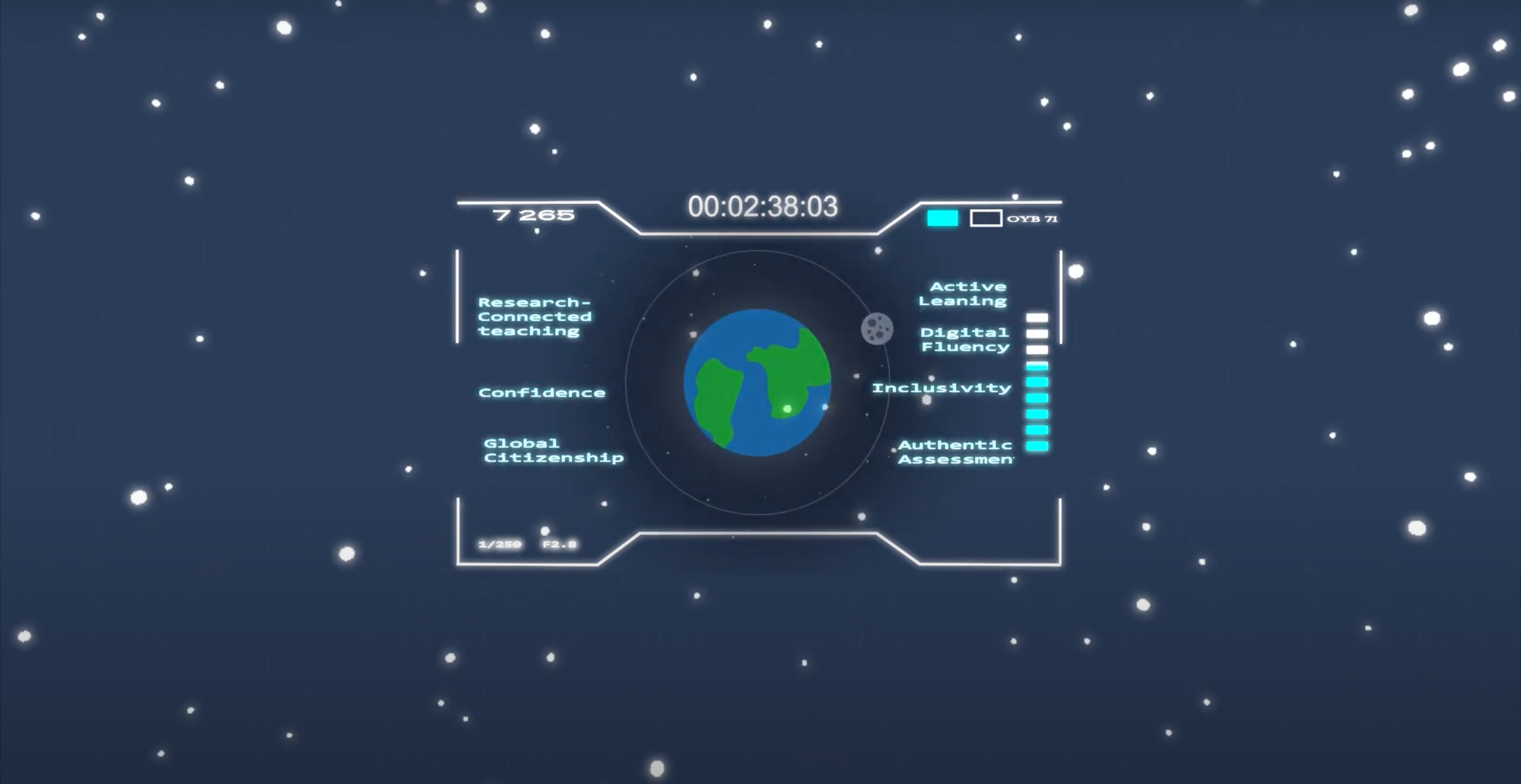Anchoring Educator Unity in Interactive Conferences
Case study: The University of Liverpool and CIE recognized the need for a more inclusive, innovative, and engaging event that would transcend borders and time zones, promoting global connectivity in the educational sector.
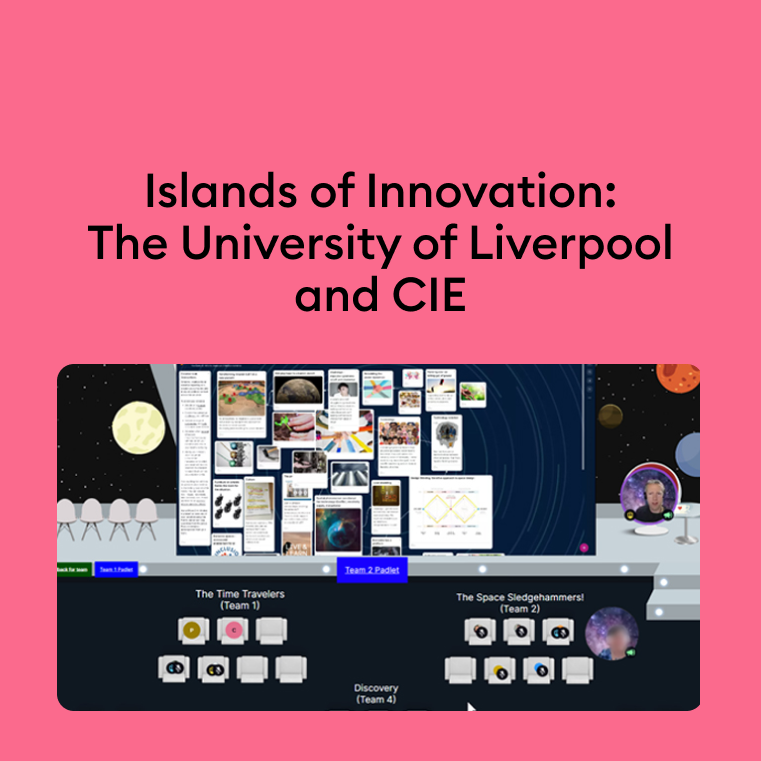
In the always-evolving landscape of education, forging a tight-knit community among educators becomes an essential cornerstone. It's about creating a vibrant, supportive ecosystem where educators can thrive because, ultimately, when educators are content and connected, students reap the benefits.
However, the challenge arises when conventional conferencing tools act as barriers rather than bridges, often leaving educators feeling disconnected. These tools often need to be revised, offering static and monotonous environments that limit organic and lively exchanges while also limiting participation due to geographical constraints.
Event Overview: Ready, Set, Connect
The Islands of Innovation 2023, following the success of its 2022 edition, took a bold step by venturing into space, metaphorically speaking. Hosted by the University of Liverpool and CIE, the event spanned three days, with each day tailored to suit different time zone regions, ensuring global participation.

SpatialChat was chosen as an online collaborative platform for its capabilities to facilitate synchronous and asynchronous communication within a virtual environment.
Mapping the Mission
The conference organizers had specific goals in mind when considering the ideal online platform for their educators. They were looking for a platform that:
- Boosts Autonomy: Empowers educators with the freedom to navigate, decide their direction, and choose their engagement style.
- Promotes Inclusivity: Designed with accessibility at its core, ensuring every participant feels integrated and valued in the collaborative journey.
- Facilitates Interaction: More than just communication, the platform allows educators to express their creativity, understanding, and engage with a variety of content.
- Has Diverse Communication Channels: Offers multiple avenues for communication, from video and text to emojis, catering to different communication preferences.
Before the main event, attendees embarked on an interactive 'space quest,' exploring the platform's features such as digital space interaction, sound proximity, breakout rooms, and multimedia possibilities. This ensured they were fully equipped with various tools to express themselves better and engage in real-time collaboration during the event.
SpatialChat Magic Solutions
One of the significant challenges in global collaboration is the constraint of time zones. The Organising Committee of “The Islands of Innovation” addressed this by hosting events across different time zones, ensuring inclusivity. Beyond scheduling sessions for different time zones, SpatialChat allowed groups to work asynchronously. Materials and work-in-progress, uninterrupted chat record stayed in the room, enabling participants to join later and contribute, fostering continuous collaboration. This approach catered to a global audience and ensured that the hands of a clock didn't bind collaboration.
Open, collaborative spaces that document shared thinking about professional practice to showcase a variety of approaches are exactly what international educational development needs in order to model inclusive pedagogies.
Festival participant
Diverse Activities for Diverse Minds
SpatialChat, with its diverse range of multimedia and interactive instruments, such as multiple screensharing, note-taking, GIFs, and YouTube videos, enabled educators to engage in many activities. This multimedia-rich environment provided the perfect setting for collective storytelling, allowing educators to share their narratives and create a collective story.
Task Fusion
SpatialChat allowed for a mix of activities to co-occur. Participants were split into groups and worked on different projects simultaneously. They could focus on multiple interactive elements or switch between them, promoting dynamic engagement.
An exciting and thought-provoking event. I love the platform. It was fun and interactive.
Festival Participant
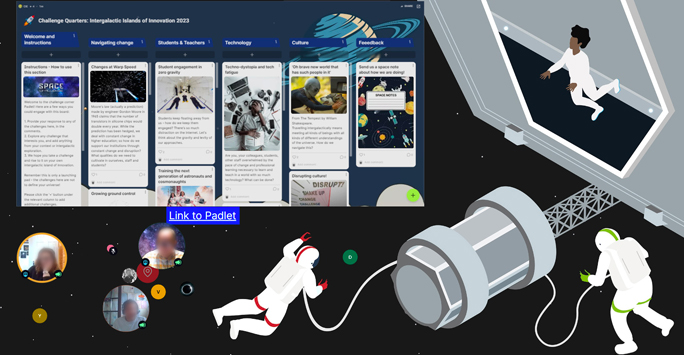
Navigation
The platform facilitated easy navigation through user-friendly features, including strategically placed links within the space. Curators equipped with megaphones ensured clear communication and guidance, helping users stay focused and engaged throughout their interactions.
Enhancing Well-being
The event incorporated cultural elements such as music, art, and artifacts to enrich the narrative and support the team well-being. A light-hearted approach was maintained without compromising intellectual rigor.
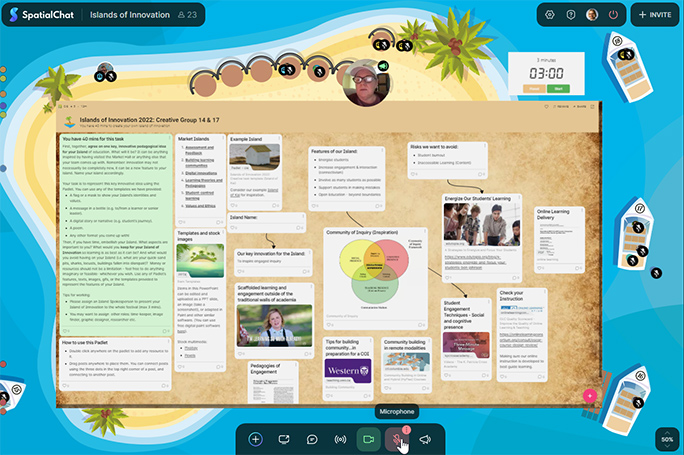
Immersive Realm
SpatialChat allows the add of immersive backgrounds to navigate people and fit the context for purpose. Unique touches like gathering in boats for presentations and a campfire at the end of the event added to the authentic experience.
I enjoyed the platform and the structure of the event on the islands - I felt like I'd been 'away' to an event.
Festival participant
CollabQuest: Islander’s Journey
- Participants explored six market hall themes in the shared space to inspire their final task of co-creating an Island of Innovation. These themes ranged from 'Assessment and Feedback' to 'Student-centred learning'.
- After familiarizing themselves with various project themes, participants were grouped into diverse teams upon arrival, aligned with the specific narrative they would work on.
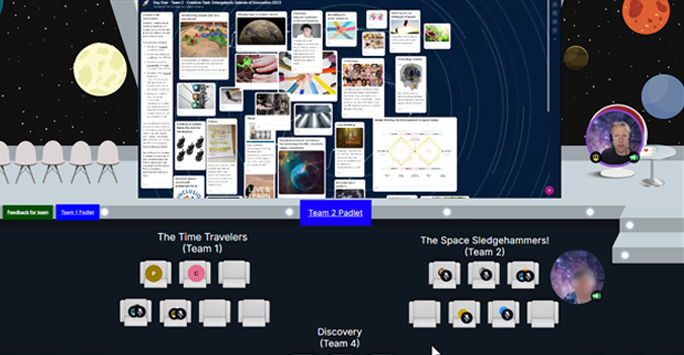
- These teams were then guided to separate breakout rooms, where each group worked on their projects simultaneously. Their primary task was to craft a digital narrative of an educational mission set across the universe. This required teams to agree on a mission narrative, identify challenges, and devise pedagogical strategies. Cultural elements, such as music and art, were integrated to enrich the narrative and foster team cohesion.
- To ensure adaptability, teams were primed for unexpected developments, which they had to incorporate into their narratives. The use of Padlet boards in SpatialChat allowed teams to share their progress and narratives, culminating in a 3-4 minute presentation of their Islands of Innovation.
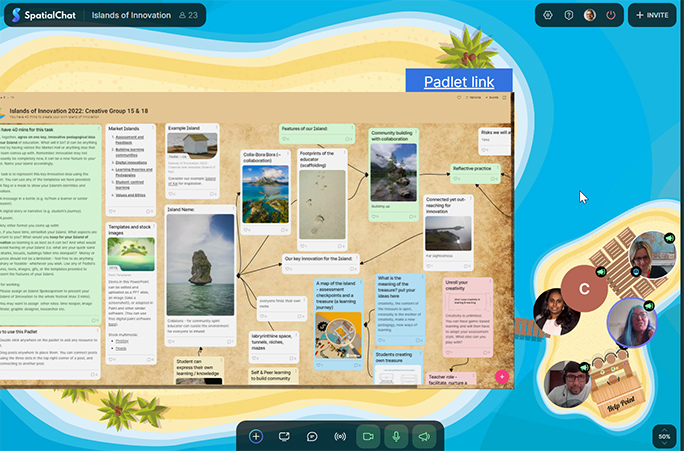
Feedback and Impact
Participant feedback was overwhelmingly positive, highlighting the event's global nature, innovative use of SpatialChat, and the opportunity to collaborate with peers from diverse backgrounds. The event demonstrated the potential of online conferencing and set a benchmark for inclusive and interactive professional collaboration. The success of the Islands of Innovation event acted as a catalyst, inspiring educators to embrace new tools, techniques, and collaborative approaches.
A great example of how the whole sector (and the whole world if you ask me) can do online conferencing well. So much more inclusive, allowing access to people from all over the world, and I think I have more interaction than I would have in an F2F setting.
Festival Participant
Conclusion
Islands of Innovation went beyond just another event; it was a powerful demonstration of the transformative impact of genuine collaboration. The University of Liverpool understood the importance of a community of teachers and created this event to enhance awareness, knowledge, and familiarity with new pedagogical methods. By providing an interactive and engaging digital environment, they could capture the participants' attention. The event showcased the potential of modern collaborative platforms beyond traditional web conferencing, offering a space for free conversation and unity among educators. The key takeaway is clear: When educators are given the right environment and tools, they can create waves of positive change in the world of education.
